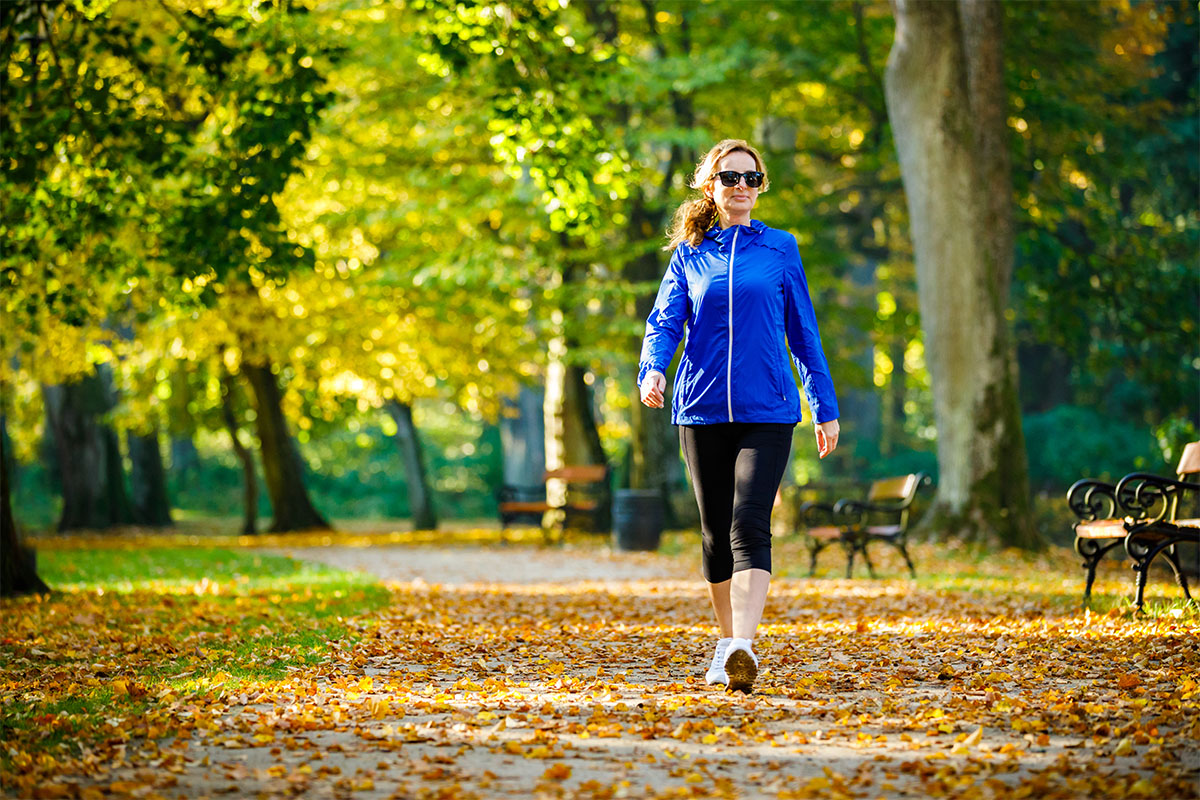
For immediate release: February 6, 2023
Boston, MA – Women who followed most aspects of a healthy lifestyle, including healthy body weight, not smoking, regular exercise, adequate sleep, high quality diet, and moderate alcohol consumption, had about half the risk of long COVID compared with women without any healthy lifestyle factors, according to a study led by Harvard T.H. Chan School of Public Health.
“With ongoing waves of COVID-19, long COVID has created a serious public health burden. Our findings raise the possibility that adopting more healthy behaviors may reduce the risk of developing long COVID,” said Andrea Roberts, senior research scientist in the Department of Environmental Health and senior author of the study.
The study appears online February 6, 2023, in JAMA Internal Medicine.
It’s estimated that 8-23 million Americans suffer from long COVID, which is defined as having COVID-19 symptoms four weeks or more after initial SARS-CoV-2 infection. Symptoms can include fatigue, fever, and a variety of respiratory, heart, neurological, and digestive symptoms.
The researchers analyzed data from more than 32,000 female nurses in the Nurses’ Health Study II, who reported on lifestyle in 2015 and 2017 and reported history of SARS-CoV-2 infection from April 2020 to November 2021.
During that time, more than 1,900 participants contracted COVID-19. Among these, 44% developed long COVID. Compared to women without any healthy lifestyle factors, those with five or six had 49% lower risk of long COVID. Among the six lifestyle factors, maintaining a healthy body weight and getting adequate sleep (seven to nine hours daily) were the ones most strongly associated with lower risk of long COVID. The results also showed that, even among women who developed long COVID, those with a healthier pre-infection lifestyle had 30% lower risk of having symptoms that interfered with their daily life.
The authors noted that one possible explanation for the associations they observed is that, based on prior research, an unhealthy lifestyle is associated with increased risk of chronic inflammation and immune dysregulation, which have been linked with increased risk of long COVID.
“In the past decades, scientists have accumulated evidence that healthy lifestyle is good for overall health. However, in the U.S. for example, 70% of the population do not have a healthy body weight and 30% do not sleep enough. Findings from this study suggest that simple lifestyle changes, such as having adequate sleep, may be beneficial for the prevention of long COVID,” said lead author Siwen Wang, research fellow in the Department of Nutrition.
Other Harvard Chan School authors included Yanping Li, Yiyang Yue, Changzhen Yuan, Jorge Chavarro, and Shilpa Bhupathiraju.
Support for the study came from NIH NICHD grant 3R01HD094725-02S1. Other support includes grants U01HL145386, R24ES028521, U01 CA176726, R01 CA67262, and R01 HD057368 from the NIH, the Dean’s Fund for Scientific Advancement Acceleration Award from Harvard Chan School, and Massachusetts Consortium on Pathogen Readiness Evergrande COVID-19 Response Fund Award.
“Adherence to Healthy Lifestyle Prior to Infection and Risk of Post-COVID-19 Condition,” Siwen Wang, Yanping Li, Yiyang Yue, Changzheng Yuan, Jae Hee Kang, Jorge E. Chavarro, Shilpa Bhupathiraju, Andrea L. Roberts, JAMA Internal Medicine, online Feb. 6, 2023, doi: 10.1001/jamainternmed.2022.6555
Visit the Harvard Chan School website for the latest news, press releases, and multimedia offerings.
Image: iStock / gbh007
For more information:
Maya Brownstein
mbrownstein@hsph.harvard.edu
###
Harvard T.H. Chan School of Public Health brings together dedicated experts from many disciplines to educate new generations of global health leaders and produce powerful ideas that improve the lives and health of people everywhere. As a community of leading scientists, educators, and students, we work together to take innovative ideas from the laboratory to people’s lives—not only making scientific breakthroughs, but also working to change individual behaviors, public policies, and health care practices. Each year, more than 400 faculty members at Harvard Chan School teach 1,000-plus full-time students from around the world and train thousands more through online and executive education courses. Founded in 1913 as the Harvard-MIT School of Health Officers, the School is recognized as America’s oldest professional training program in public health.









